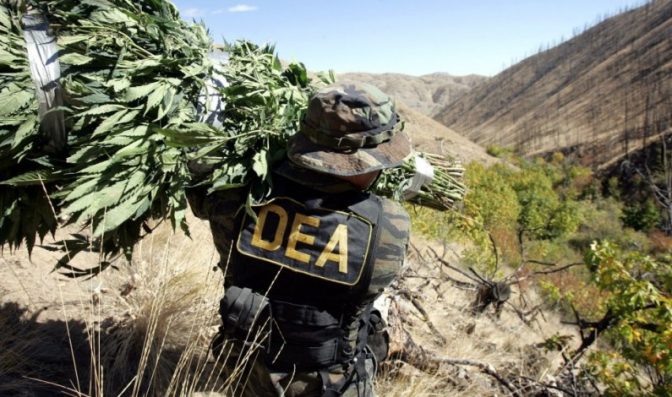State Department: The DEA Has Been Lying About Research Pot

The Drug Enforcement Administration (DEA) has long claimed that international treaty obligations mandate the agency to license no more than a single entity to grow marijuana for research purposes. Since 1968, that sole entity has been the University of Mississippi, which operates a seldom-discussed program overseen by the National Institute on Drug Abuse (NIDA).
In 2011, the DEA went so far as to set aside a ruling from its own administrative law judge in a bid to continue the federal government’s marijuana monopoly. The order, initially issued by Judge Mary Ellen Bittner in 2007, argued that permitting the private production of cannabis for research purposes was “in the public interest.” But the DEA said otherwise, claiming that such activity would be “inconsistent with United States obligations under the Single Convention (treaty).”
A newly released correspondence from the State Department’s Bureau of International Narcotics and Law Enforcement to Sen. Kristen Gillibrand (D–NY) reveals the DEA’s allegations were incorrect. In the letter, the State Department makes it clear that the federal government could issue cultivation licenses to multiple providers without violating treaty agreements:
“If a party to the Single Convention issued multiple licenses for the cultivation of cannabis for medical and scientific purposes, that fact alone would not be a sufficient basis to conclude that the party was acting in contravention of the Convention.»
Sen. Gillibrand responded: “Now that the State Department has confirmed this treaty should not be a barrier to expanding research, the DEA should issue new licenses to supply medical researchers and stop letting antiquated ideology stand in the way of modern medical science.”
Such a change in policy remains highly unlikely. Under federal regulations, clinical trial protocols involving cannabis must meet approval from the Food and Drug Administration, the DEA and NIDA, and are required to use source material provided by the University of Mississippi. Presently, no other substance faces such severe restrictions.
If you enjoyed this Freedom Leaf article, subscribe to the magazine today!

